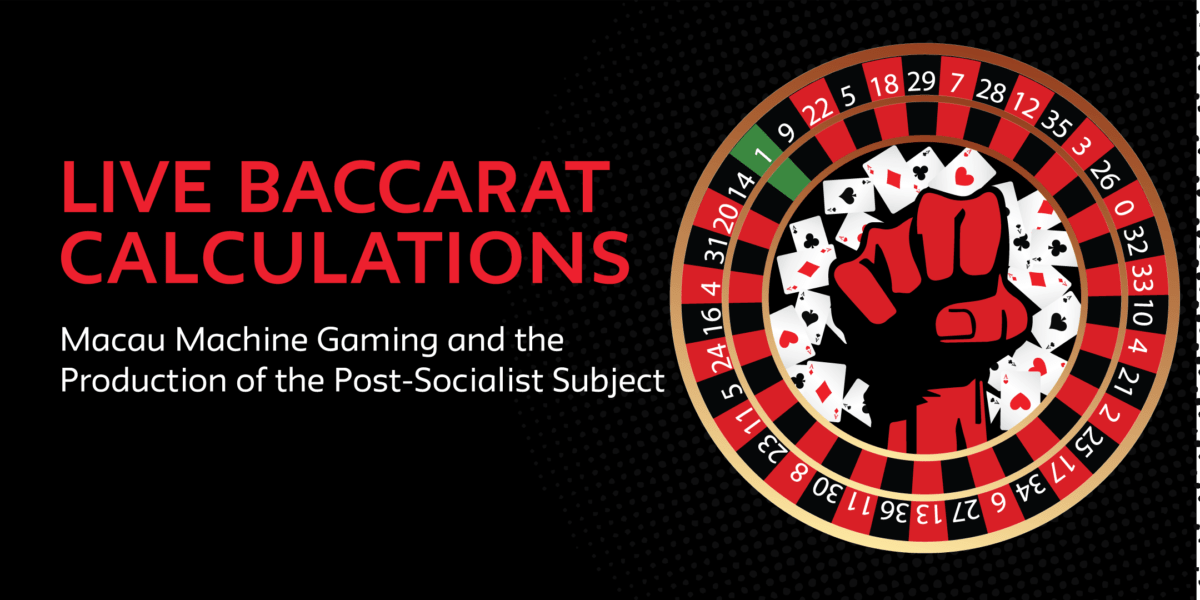
Live Baccarat Calculations: Macau Machine Gaming and the Production of the Post-Socialist Subject
October 5, 2017 , 5:30 pm – 7:30 pm

Following Portugal’s return of Macau to the People’s Republic of China in 1999, the local government liberalized the city’s 150-year-old casino monopoly concession and invited participation by select foreign gaming companies. Over the following decade these companies produced a phantasmagoric Macau cityscape comprised of enormous integrated casino resorts such as the Venetian, Parisian, Wynn, MGM, and City of Dreams. As a result, tiny Macau is now the world’s most lucrative site of casino gaming, and is visited by more than 30 million tourists per year. The majority of Macau’s casino revenues are derived from Chinese high-rollers who gamble in private VIP rooms. However, due to a recent slowdown of China’s economy, as well as a central government crackdown on corruption and tightening of illicit cross-border financial flows, Macau’s VIP gambling revenues have decreased significantly. Therefore, Macau’s gaming operators are seeking to diversify the industry and to target Chinese ‘mass market’ tourists. This paper analyzes an electronic casino game called LIVE Baccarat, which was specifically created for the Macau market and designed to appeal to ordinary Chinese gamblers. Drawing on the work of Michel Callon and Michel Foucault, I explore the ways in which the LIVE Baccarat gaming machine ‘economizes’ the casino game of baccarat by introducing novel betting functions which require gamblers to engage in various forms of financial calculation. LIVE Baccarat may be understood as an apparatus, or dispositif, of subjection of a Chinese ‘mass market’ gambler – an individuated, speculating, calculating, and risk-taking subject, and a form of ‘human capital’ that Foucault might call an ‘entrepreneur of the self’. This nascent Chinese economic subject is not only important to Macau’s gaming industry, but to post-socialist market reforms in the PRC, and perhaps ultimately to the sustainability of global capitalism.
This is an India China Institute event, co-sponsored by the School of Design Strategies, Parsons School of Design, and the Global Studies Program, The New School
RSVP Here:
